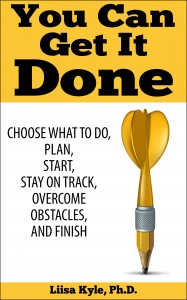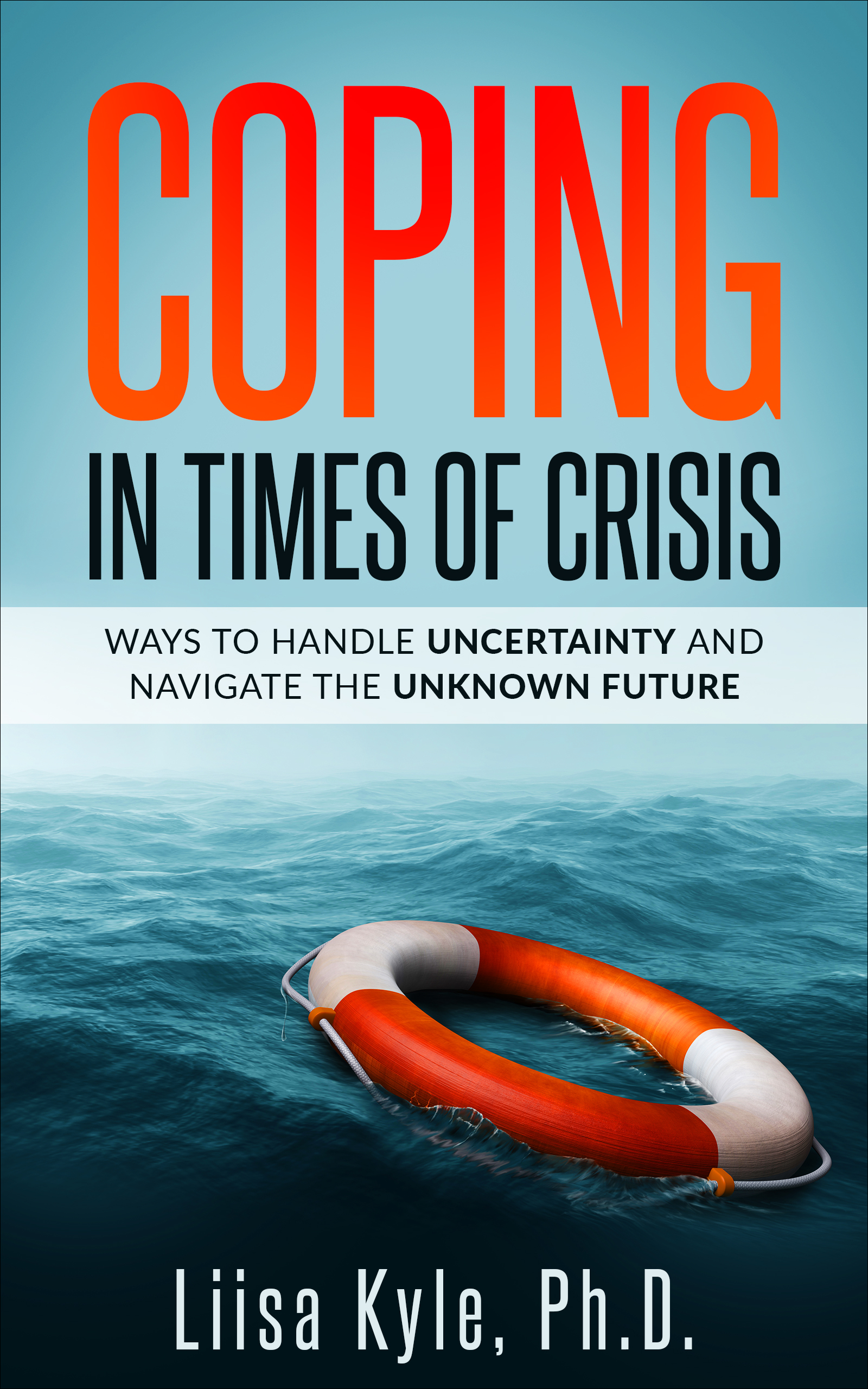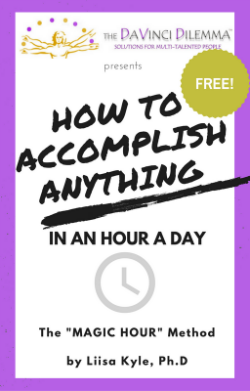
By photo taken by flickr user *Micky* (flickr) [CC BY-SA 2.0 (https://creativecommons.org/licenses/by-sa/2.0)], via Wikimedia Commons
We
DaVincis have a tendency to set our sights on accomplishing more than we ever could during a given time period. We write such long ‘to do’ lists that whatever we do get done seems minimal compared to all there is left to so. The tendency to over-subscribe ourselves is understandable — we are juggling multiple talents, projects, roles and ideas so yes, we have an awful lot to do. However it’s also not particularly helpful.
The Costs of Too Long ‘To Do’ Lists
1. They may foster a chronic state of dissatisfaction
It feels awful to fall short of our ambitious plans, day after day. This can be
demotivating, frustrating and
stressful. We can feel like losers. We can feel hopeless — like we are bailing out a sinking boat with a teaspoon.
2. They make it harder to keep going.
Whenever we’re feeling unproductive in the grand scheme of things, it requires more energy to get things done. We tend to experience
procrastination,
fear, feelings of being overwhelmed and other self-made obstacles.
3. They devalue whatever does get done.
No matter what you accomplish, it is dwarfed by all that remains to be done. Whether it’s a small errand, a key milestone or a major triumph, it pales against the background of everything left to do.
4. They can throw life out of balance.
Whenever you’re scrambling around, wielding overly long to do lists, something gets short shrift. It might be your health or your domestic responsibilities or your long-term dreams.
If any of this sounds familiar, consider an alternative to long ‘to do’ lists: Often, by aiming to do less, we can do more.
Each morning, begin your day by choosing your top priorities.
Rather than chronicling every single thing you could conceivable do and every item you ‘should’ do, focus on only two or three things per day. Ideally you would commence each day by selecting one key task in each of two or three areas of life. Let’s say, you choose whatever would be most important in your work life, in your domestic life and in terms of your health. For example, the most important things I could do today would be to spend at least an hour on my upcoming book, to clean my dogs’ ears, and to go to Zumba class.
I can sense you balking already — I can sense you judging my choices as ‘lame’ and wailing “Maybe you can operate this way, but I have WAY too much to do!” Pause for a moment and let me continue. Understand that of course I have many dozens of items I could be doing today. That’s not the point.
This point is that by setting the intention to accomplish my top priorities, they will get done. Moreover, since they are simple, easy, concrete tasks they will be completed without stress, muss, guilt, procrastination, gnashing of teeth, or rending of garments. Further as each of the three tasks gets done, I will earn a sense of accomplishment and gain a boost in energy. Because my choices span three different life domains, my actions are fostering life balance.
Sound good? Here’s the best part: Once these items are completed, I’m free to do more. Whatever else I do is icing on the proverbial cake. This means that whatever else I get done today, I’ll feel that much better, that much more productive, that much more competent, that much more fulfilled and satisfied.
However, if something should prevent me from doing more that these priorities today, it’s okay. I won’t despair or feel anxious or guilty or lazy or stressed. I’ve already set out what I intended for the day.
If I’m consistent over time — if I use this technique every day — I am setting myself up for chronic success and satisfaction over time. By definition, I’ll be getting done whatever is most important in different areas of life. That’s all any of us can reasonably expect to do.
As DaVincis, we will NEVER get it all done. We will always be generating new projects, ideas and opportunities for our many talents. It is unfair, if not cruel, to expect some magical moment when our behemoth ‘to do’ lists will be completely completed. It is more reasonable — and kinder — to aim for steady progress. To find contentment in what does get done, whatever it is.
This approach might feel like ‘cheating’ — that you’re being lazy. It may seem counter-intuitive. But to the extent you can park the lengthy ‘to do’s’ and focus on only two or three daily priorities, the more you will get done, with less stress and with more satisfaction.
***
Activity:
Today, what is one important thing you could do for yourself? (Write it down)
Today, what is one important thing you could do for your business, profession, career or vocation? (Write it down)
What is one important thing you could do for your household today? (Write it down)
Today, focus on these three items. Avoid tackling other activities until these three things are completed.
Want to re-publish this article? Go for it – just include the author’s name, a link to this original post and the following text blurb:

 Want more tips and techniques on getting things done? Check out my book YOU CAN GET IT DONE: Choose What to do, Plan, Start, Stay on Track, Overcome Obstacles, and Finish
Want more tips and techniques on getting things done? Check out my book YOU CAN GET IT DONE: Choose What to do, Plan, Start, Stay on Track, Overcome Obstacles, and Finish


